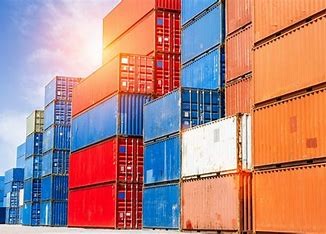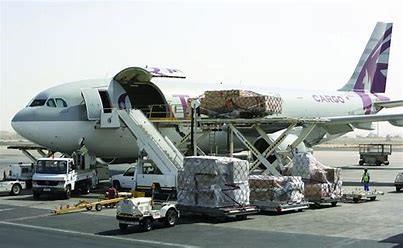The Domestic Airports Cargo Agents Association (DACAA) has reported that Nigeria suffered an estimated financial loss of about ₦7 billion due to a nationwide strike that spanned two days. This significant strike was initiated by Nigerian workers operating under the Nigeria Labour Congress and the Trade Union Congress and took place on Monday and Tuesday.
Mr. Ikpe Nkanang, the Chairman of the Board of Trustees of DACAA, discussed the impact of the strike in an interview with the News Agency of Nigeria (NAN) on Friday in Lagos. He revealed that typically, approximately 30 tonnes of cargo are handled daily across the country’s domestic airports. The strike, therefore, caused a massive backlog and disruption in cargo handling operations.
Nkanang elaborated that the financial implications of this disruption were severe. Cargo that would ordinarily be in transit or delivered was left stranded, causing delays in supply chains and affecting businesses that rely on timely delivery of goods. He noted that the volume of cargo left unattended due to the strike was substantial and that the losses extend beyond the immediate financial estimates. The delay in cargo movement likely had a ripple effect on various sectors, including retail, manufacturing, and even perishable goods markets, which might have experienced spoilage or stock shortages.

Furthermore, the strike highlights the vulnerability of the nation’s logistics and supply chain infrastructure to labor disputes. Nkanang stressed the importance of addressing the underlying issues that led to the strike to prevent future disruptions. He called for more robust dialogue between the government, labor unions, and other stakeholders to find sustainable solutions to workers’ grievances, ensuring the continuity of critical services such as cargo handling at domestic airports.
Mr. Ikpe Nkanang explained to the News Agency of Nigeria (NAN) that a significant amount of cargo had been accumulated and prepared for shipping on Monday morning, right before the strike began.
He emphasized the impact of the strike, noting that for those two days, airline operations were halted. This suspension of airline services meant that cargo movement was brought to a complete standstill, resulting in substantial losses for everyone involved.
Nkanang highlighted the sheer volume of cargo that was left stranded over the two-day period, pointing out that goods were collected over the weekend with the expectation that they would be dispatched on Monday and Tuesday. The strike disrupted these plans, causing a significant backlog and financial setbacks.
“It was a colossal loss to us in the cargo world, it affected our income and, of course, the economy of the country.
“For those few hours of the strike, the country lost about ₦7 billion across all local airports,” he said.

Mr. Ikpe Nkanang mentioned that the cost of transporting one kilogram of cargo is ₦300. He called on the Federal Government to promptly reach an agreement with the organized labor unions to prevent the strike from resuming.
The News Agency of Nigeria (NAN) reported that labor unions suspended the strike on Tuesday afternoon to facilitate ongoing negotiations regarding a new minimum wage. During the strike, airport operations were severely disrupted as aviation unions blocked all access points to domestic terminals, effectively grounding flights and halting cargo movement.
Nkanang stressed the urgency of resolving the dispute, highlighting the critical role of airports in maintaining the flow of goods and the broader economic implications of continued disruptions. He urged both the government and labor unions to find a sustainable solution that would ensure stability in airport operations and protect the interests of businesses and workers alike.
The statewide strike’s impact on airport operations reveals a serious weakness in Nigeria’s economic and logistical infrastructure. Although labor unions are essential for promoting workers’ rights, the substantial financial losses and administrative difficulties highlight the need for a more proactive and cooperative approach to labor dispute resolution. To avoid such interruptions, the government and unions need to prioritize communication and bargaining. For economic stability and expansion, it is imperative to maintain the provision of basic services like goods transportation. Sustainable growth requires balancing the needs of workers with the need to maintain operations.
Sources




